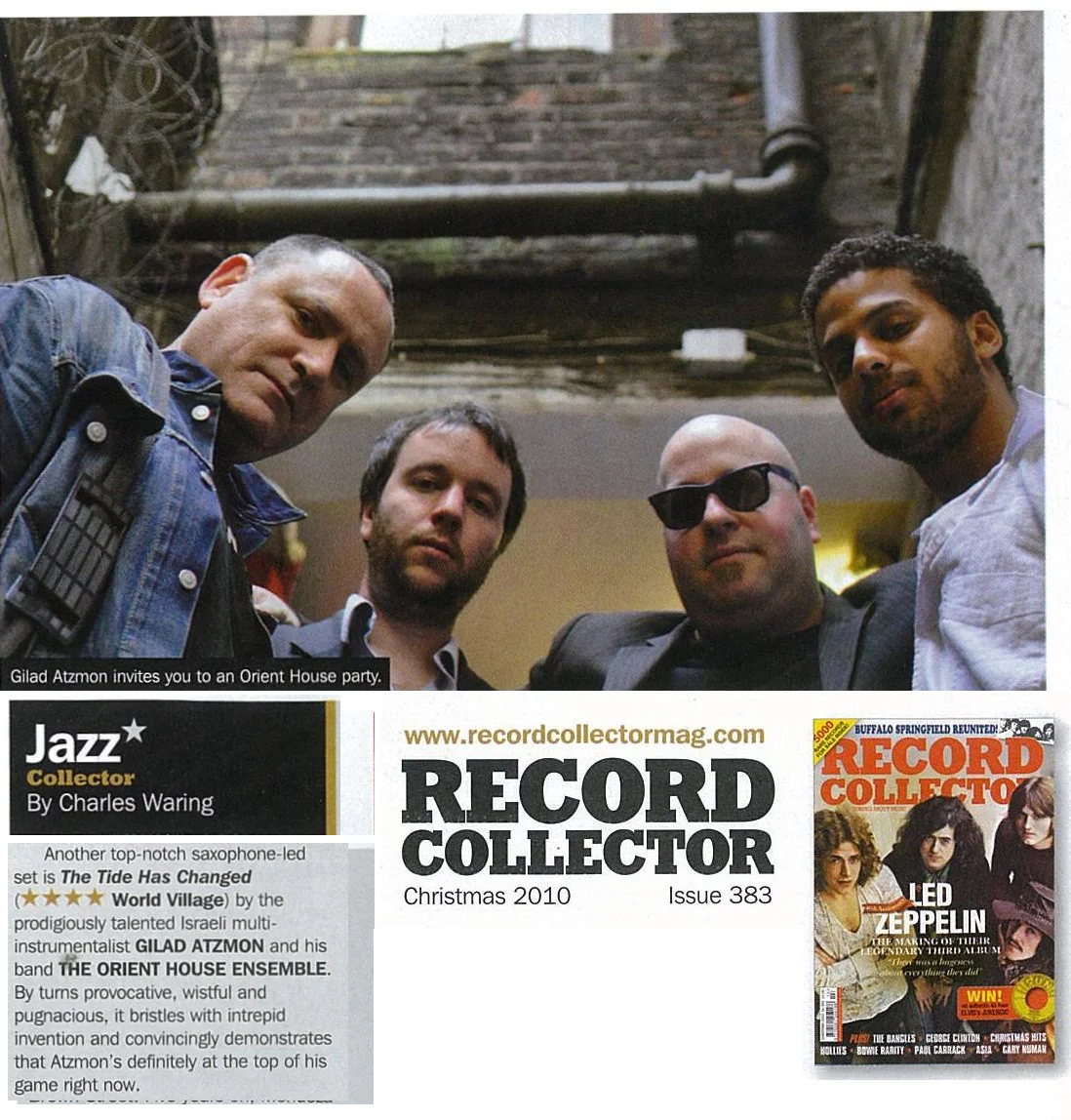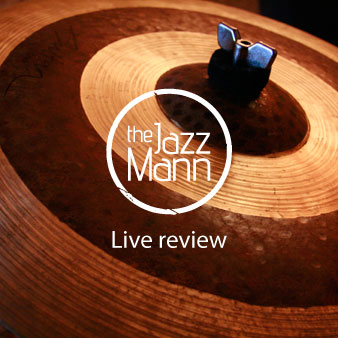M&G: The Tide Has Changed von Gilad Atzmon & The Orient House Ensemble

9. Feb 2011, 13:14
****
Seine Musik ist wie eine Offenbarung. Als gefeierter Musiker der Jazzszene Großbritanniens, lässt er nun auch verstärkt Deutschland in den Genuss seiner Kunst kommen. Mit „The Tide Has Changed“ begibt sich Gilad Atzmon & The Orient House Ensemble auf ein Bebop Terrain voller spannender Momente. Geprägt von nahöstlichen Klängen, schwebt die Musik in einem Dialog voller explosiver Augenblicke unaufhaltsam durch Raum und Zeit. Turbulent!
1963 wurde Gilad Atzmon in Jerusalem geboren. Im Jahre 2000 gründete der Holzblasinstrumentenmusiker die Formation The Orient House Ensemble. Nun gilt es in 2011 ein 10jähriges Jubiläum zu feiern. Zu diesem Anlass veröffentlicht das Quartett eine aufregende Produktion „The Tide Has Changed“. Eine ganz besonders ergreifende Mischung von Kultur und Tradition. Die knalligen Improvisationen versprühen Charme und leben vom schrägen Humor des Bandleaders. Im Dialog der Verspieltheiten – Bebop trifft auf nahöstliche Klänge.
Prägend dabei vor allen Dingen das raffinierte und eindringliche Spiel Gilad Atzmon. Der Multiinstrumentalist – er agiert an diversen Saxophonen, an Klarinette, Sol, Zurna und an Flöten – brennt vor Energie und verströmt unbändige Spannung.
Brillanz, Leidenschaft, Intensität und Wärme – das ist „The Tide Has Changed“. Zeitgenössischer Jazz in unterschiedlichen musikalischen Stilen zelebriert und verpackt. Empfehlenswert!
Line Up: Gilad Atzmon (Multiinstrumentalist), Frank Harrison (Piano, Xylophon), Yaron Stavi (Bass), Eddi Hick (Drums).
Ebenfalls vormerken: The 2011 Spring Tour: 06.03. Wien (A), 08.03. Redange (L), 09.03. Frankfurt, 11.03. Klosters (CH), 12.03. Chur (CH), 13.03. Freibrug, 14.03. Pforzheim, 15.03. Saarwellingen, 16.03. Zürich (CH), 17.03. Karlsruhe, 18.03. Köln, 19.03. Heilbronn. Weitere Informationen unter www.gilad.co.uk
English translation
His music is a revelation. As a celebrated musicians of the jazz scene in Britain, it can now also used increasingly in Germany to enjoy his art. With "The Tide Has Changed" goes to Gilad Atzmon & The Orient House Ensemble on a terrain full of exciting moments Bebop. Influenced by Middle Eastern sounds of floats, the music in a dialogue of explosive moments inexorably through space and time. Turbulent!
1963 Gilad Atzmon was born in Jerusalem. In 2000 founded the woodwind musicians group The Orient House Ensemble. Now it is in 2011 a 10th anniversary celebration. At this event, the quartet is an exciting production of "The Tide Has Changed". A particularly poignant mix of culture and tradition. The bright improvisations exude charm and live off the quirky humor of the band leader. In the dialogue of playfulness - Bebop meets Middle Eastern sounds.
Influential here, above all, the refined and haunting play Gilad Atzmon. The multi-instrumentalist - he acts on various saxophones, clarinets, sol, zurna and flute - is burning with energy and exudes unbridled power.
Brilliance, passion, intensity and heat - this is "The Tide Has Changed". Contemporary Jazz celebrated in different musical styles and packaged. Recommended!
Line Up: Gilad Atzmon (multi-instrumentalist), Frank Harrison (piano, xylophone), Yaron Stavi (bass), Eddie Hicks (drums).
Also Mark your calendar: The 2011 Spring Tour: 06.03. Vienna (A), 08.03. Redange (L), 09.03. Frankfurt, 11.03. Klosters (CH), 12.03. Chur (CH), 13.03. Freibrug, 14.03. Pforzheim, 15.03. Saarwellingen, 16.03. Zurich (CH), 17.03. Karlsruhe, Germany, 18.03. Cologne, 19.03. Heilbronn. For more information www.gilad.co.uk






















